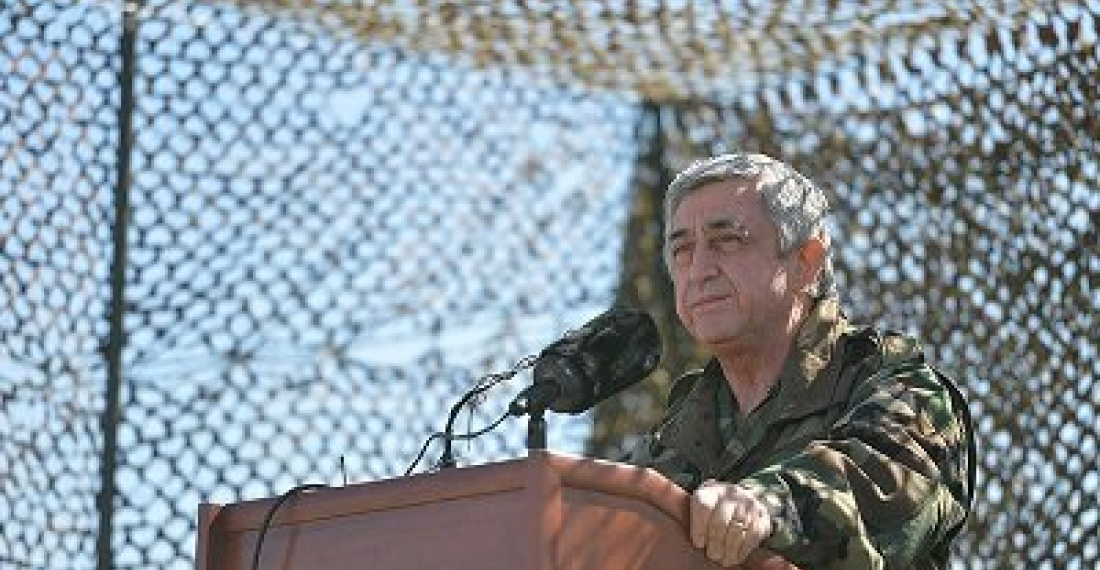Armenian president Serzh Sargsyan visited Nagorno-Karabakh over the weekend, meeting the leaders of the self-declared Nagorno-Karabakh Republic and visiting military units close to the line of contact in the conflict zone.
Speaking on Saturday (25 March), President Sargsyan said that as Commander in Chief he was ready to order the firing of the recently aquired Iskander tactical missiles, if necessary.
The website of the Armenian President quoted him as telling a gathering of soldiers and their relatives:
"Last April, we threw back the adversary, which violated international agreements, on all directions; we ruined their plans, we smashed them altogether in the information war of those days. In one year, we fortified our border and armed our troops to the extent that today our frontline is simply unrecognizable. Today, our guys are following the movements of the enemy in the depth of its own territory. Today, super modern, devastating striking power is aimed at the entire territory of our belligerent neighbor, including its vital infrastructure. And today, the Commander-in-Chief of the Armenia without batting an eyelid will give if needed the order to strike with the Iskander. In the neighboring country they know it all too well."
The statement was the first public claim that Armenia now has full operational control over the Iskander missile system which it aquired from Russia last year. The statement also indicated that Armenia was ready to take the war beyond the current line of contact into the Azerbaijani heartland.
Azerbaijan's first official public reaction dismissed Sargsyan's statement as "a primitive step, which is intended for an internal audience and aimed at strengthening the shaken authority of his criminal gang and increasing his pre-election rating". The statement, by Azerbaijan's Defence Ministry, quoted by the nerws agency APA added,
“The enemy should understand that all military facilities and other strategic objects located in Azerbaijan’s occupied territories, including Armenia are constantly targeted by the Azerbaijani army,” said the defense ministry, noting that any threat from Armenia will be suppressed immediately and decisively".
source: commonspace.eu
photo: Armenian President Serzh Sargsyan speaking in Nagorno-Karabakh on 25 March 2017. (picture courtesy of the press service of the President of Armenia)







